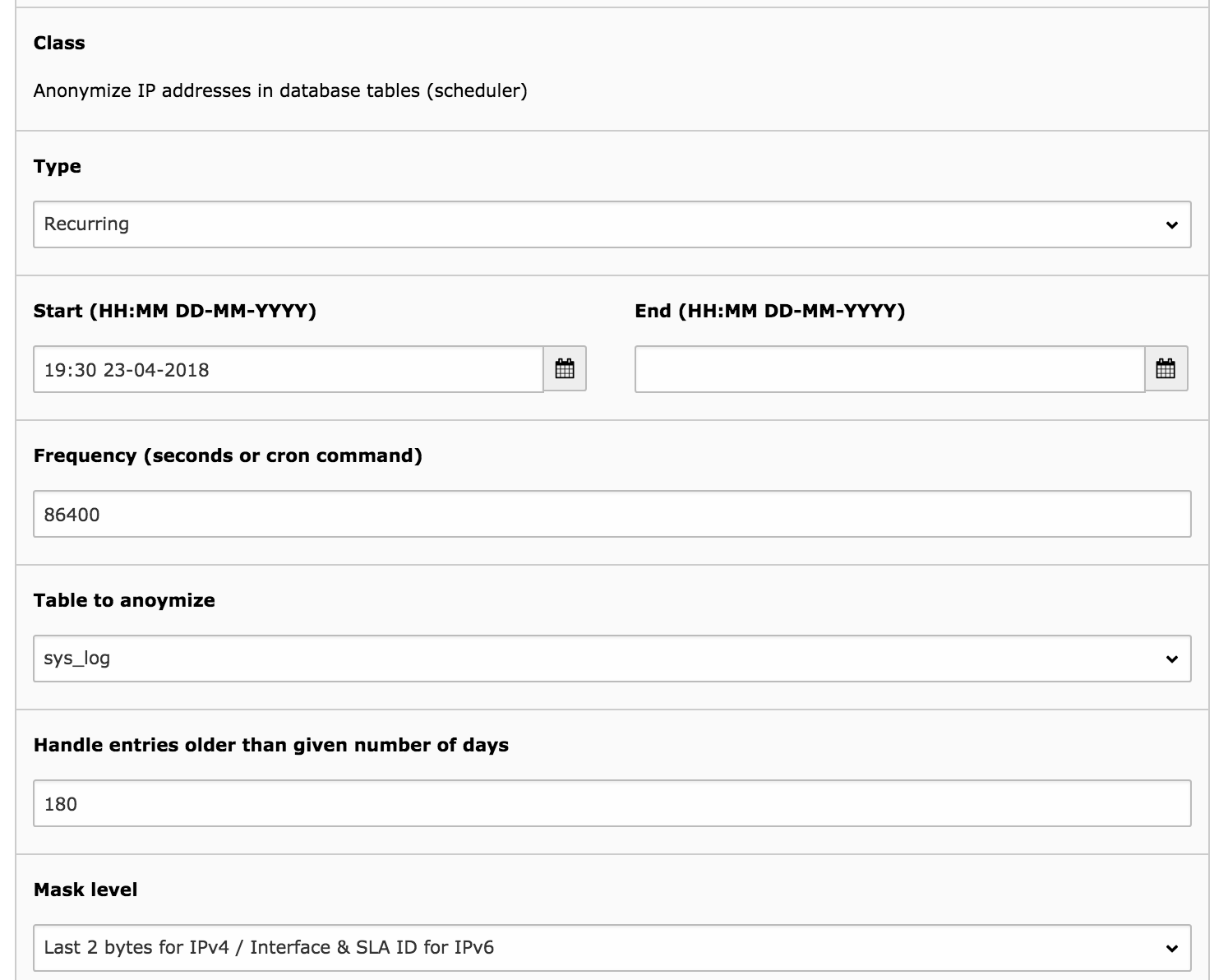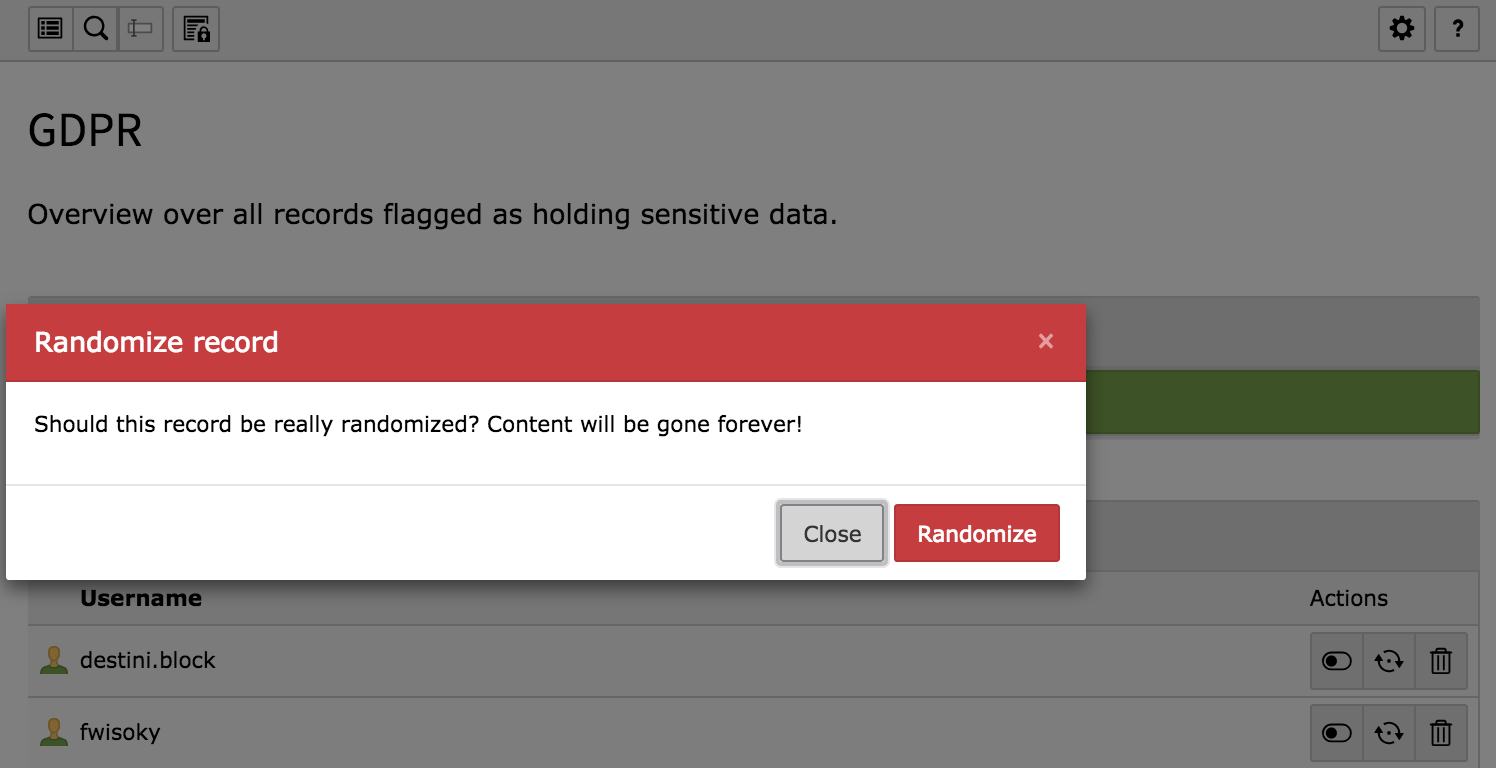TYPO3 13.4.20 and 12.4.39 maintenance releases published
The versions 13.4.20 and 12.4.39 of the TYPO3 Enterprise Content Management System have just been released.
The TYPO3 Community announces a special release that offers improved GDPR compliance tools right out of the box. This release was lead by the GDPR Initiative, aiming to make it easier for TYPO3 developers to create applications and websites that provide data protection by default and by design.
We are announcing the release of the following TYPO3 updates:
All versions are maintenance releases and contain improvements only.
The European Union’s new privacy requirements outlined in the General Data Protection Regulation (GDPR) mean website and application developers must provide users with better controls, informed consent, and data protection. Important note: This article does not constitute legal advice.
If you’re designing and developing web applications that handle sensitive personal data or even just setting cookies for site visitors, the regulations affect every aspect of planning and development. By taking a proactive, defensive stance of “privacy by default” and “privacy by design” you can ensure your sites and applications are GDPR compliant. Developers are considering how they can ensure the data they collect is minimal and stored securely. They are also looking for ways to provide better controls to users.
Those who are responsible for managing user data in their applications see this as win-win because it will reduce risk in the long term, and improve user confidence and trust in the applications they use every day. Read what you need to know about GDPR.
TYPO3 had many privacy features already before GDPR was an issue. As a community, we have always taken user control and data-privacy and -protection seriously. This latest release makes it even easier for you to build GDPR compliant websites with TYPO3.
A recent post by Georg Ringer of the TYPO3 GDPR Initiative outlined some of the data protection features TYPO3 already had. For example, TYPO3 supported secure connections with HTTPS/TLS, allowing administrators to force users to use it for both front and back end. TYPO3 already employed cryptographic password hashing containing random salts (“salted passwords”) to avoid storing this sensitive information in cleartext. You could also easily delete old records to clean out personal data. TYPO3 CMS also has sophisticated user and group access management for backend users to grant access permissions to information only as strictly needed.
Let’s look at some highlights from this release.

Recital 26 of the GDPR clarifies that data which has been irreversibly anonymized is not subject to the data protection principles. Here is how TYPO3 helps anonymize user data.
Recital 66 of the GDPR outlines a person’s right to be forgotten and have control over their data and the right to have it deleted or removed.
GDPR broadly affects any application which stores and retrieves personal data.

GDPR’s essential principle is that data protection is a fundamental right of natural persons. Core team member, Georg Ringer has announced the TYPO3 GDPR Extension to make it easier for developers to data protection in these ways.
Update: Known regression in v8.7.14 Indexed Search
TYPO3 v8.7.14 unfortunately introduced a regression in Indexed Search - see https://forge.typo3.org/issues/85064 for details.
TYPO3 v8.7.15 has been released in between which fixes the mentioned misbehavior.
TYPO3 can be installed in various ways. For example the traditional way by using the source package at get.typo3.org or the modern way by setting up a project using composer, to name just two. Further details can be found in the according release notes:
The versions 13.4.20 and 12.4.39 of the TYPO3 Enterprise Content Management System have just been released.
The TYPO3 Documentation team introduces a new feature that significantly improves the workflow for extension developers when authoring the…
Awards season is buzzing as nominees head to Düsseldorf, a side-by-side content preview shows how budget ideas become features, and TYPO3 Camp London…
In this article, Łukasz Uznański outlines the design, development journey (including UX experiments and pitfalls), and practical scenarios for…
Each month, we celebrate TYPO3 contributors in our Developer Appreciation Day post. Please take a moment to share gratitude for their continued…
The TYPO3 Marketing Team wrapped up its final sprint of the year in Berlin on 22 October 2025. The team came together to collaborate on concepts,…